FIFA General Secretary Jerome Valcke revealed that tickets prices for South African residents will be slashed to ensure that all World Cup matches will be ‘sold out’. Thousands of Category 2 and 3 tickets will be sold at Category 4 prices — twenty US dollars — although details on sales have not yet been released. This announcement came on the heels of news that FIFA expects to make a marginal loss on the tournament. Valcke placed part of the blame on airlines and travel agencies for overcharging foreign football tourists. In South Africa, however, FIFA’s byzantine ticketing process — heavily reliant on internet-based credit card sales — has been criticized. Others say Bafana Bafana’s mediocrity has not helped and that even the lower ticket prices are beyond the reach of most ordinary South Africans.
Who Will Forget The Captain is Black?
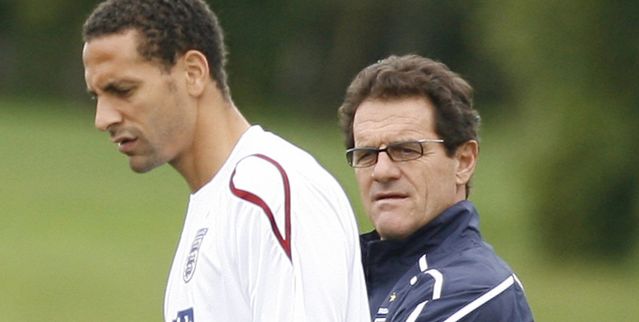
The odious John Terry has been relieved of his duties. There was always something wrong about a character like John Terry lifting the World Cup in South Africa. Fabio Capello has reportedly chosen Rio Ferdinand to replace him. A Black England Captain leading the Three Lions in Africa! If Captain Rio lifts the World Cup, who will “forget” he is black?
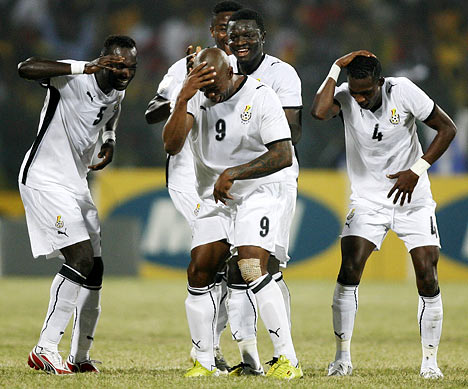
Can Africa’s World Cup qualifiers respond and take their game to a higher level. There were precious few clues in Angola to suggest they could. One would tend not to identify Pussy Cats, Super Turkeys and Tuskless Elephants as World Cup winning species, but if Cameroon, Nigeria and Cote d’Ivoire apply themselves like Black Stars they could move beyond the shadow of the Pharoahs and rediscover their fierceness.
The Black Stars were not predicted to shine in Angola. A significant number of their established names were injured or sulking. But with Milovan Rajevec, an old Yugoslav in command of the x’s and o’s, and a squad of U20 World Cup winners to choose from, folks should not have been so surprised. There has been plenty of talk of those who filled the boots of Appiah, Essien, Mensah and Muntari. Agyemang-Badu, Asamoah, Ayew and Inkoom are now household names, the equal of any Pharoah or sulking star. Ghana’s graduates will give pause to Australia, Germany and Serbia, who should note the Pharoahs may not have been so pleased with themselves if Rajevec had also introduced goalkeeper Daniel Adjei and centre forward Dominic Adiyah. Ghana were just an Adjei fingertip and an Adiyah toe poke away from closing down the party at Club Pharoah.
So how will Les Éléphants, Les Lions Indomptables and Super Eagles respond to their inglorious exits from Angola? Will they promote from their junior ranks? Will they advertise for an old partizan with a chalkboard? They could do all of the above, but nothing will change for them if the likes of Drogba, Eto’s and Yakubu don’t believe.
Props to the Pharoahs!
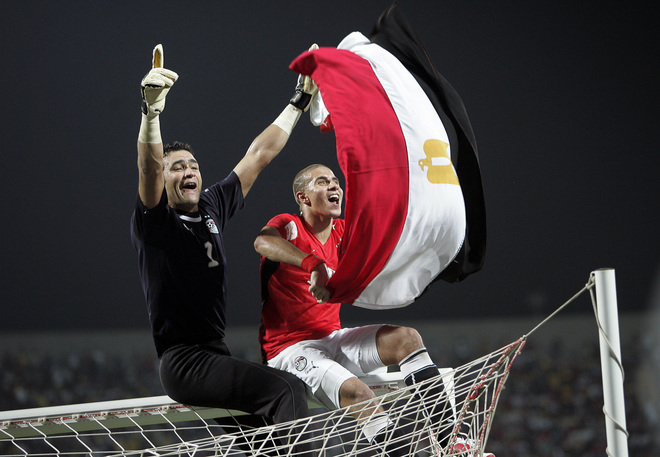
The 2010 African Cup of Nations provided a political appetizer to Africa’s first World Cup. A stubborn stain remains, but it should not distract from Egypt’s remarkable three consecutive African Nations Cups.
Props to the Pharoahs! Hassan Shehata had them playing some seriously penetrating football. They were passing and moving like a Bob Paisley machine — and that’s the highest of all high compliments one can make about a football manager. Aboutrika, Mido and Zaki, all seemed like yesterday’s men, as precocious and timely talents like Shikabla and Geddo combined with creative mainstays like Hassan, Motaeb and Zidan to persuade the ball into their opponents net. Gomaa and El Hadary ensured there would be few arguments at the other end. The Pharoahs will be missed in South Africa, especially when some European adventurers hack their way South in search of the treasure that is avoiding defeat.
And how will Africa’s World Cup qualifiers respond? The Pharoahs provided a clinic, but there were also important lessons to be learned from the performances of Malawi and Zambia. In a word: BELIEVE.
What Were They Thinking?!
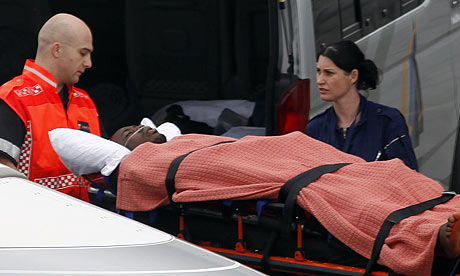
The Confederation of African Football (CAF) banned Togo from the next two African Nations Cup tournaments and also imposed a $50,000 fine. “This decision is outrageous,” said Togo captain and Manchester City striker Emmanuel Adebayor to the French newspaper L’Equipe on Sunday.
Togo returned home from the Nations Cup two days before the kickoff after two members of its delegation were killed in a terrorist attack on January 8 in Cabinda. CAF’s reason for punishing the victims is that it views the Togolese government’s decision to recall the team as ‘political interference’ in football affairs. The Togolese government intends to fight what it called the ‘insulting’ sanctions.
2010 Mascot Made in Chinese Sweatshop?
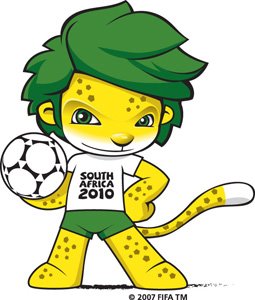
The Sunday Times reports that Chinese workers earn about $3 a day making the official 2010 World Cup mascot. Trade union federation Cosatu spokesperson said: ‘We are utterly appalled that even Zakumi, the official mascot, is being made, under such appalling conditions, in China.’ The newspaper alleges that ‘a central figure in [the] scandal ‘ is an ANC member of parliament who stated that the deal was sanctioned by FIFA and its product licensing and brand management partner Global Brands Group (GBG). FIFA said it would look into working conditions at the Shanghai factory.
Click here to read the full article.
There have been goals in Benguela, Cabinda, Luanda and Lubango, but no goals are being scored in the Stade Slyvio Cator in Port-au-Prince. Haiti’s goalposts don’t exist anymore.
Angolans paused for Haiti before every Quarter Final, the carnage of their own wars against colonialism and as proxies in the Cold War never far from their thoughts. A nation blessed by the curse of geology showing solidarity with their brothers and sisters, torn asunder by the earth’s crust, an ocean apart.
France, Britain and the United States have a history of moving Haiti’s goalposts, naming and renaming Haiti’s coach and officials, tightening the touchlines, painting countless penalty spots across Haiti’s box, forcing Haitians to cheer from terraces made from shaky dumps of their own subsidized imports, with many supporters not able to read the terms and conditions of their own oppression as laid out in the match programme.
Haiti’s goalposts don’t exist anymore. The smashed and mangled uprights belong to the “Humanitarians” now. The Stade Slyvio Cator is a tent city with thousands crammed into the spaces once created by Haitian footballers. There are no calls for the ball, but for water, medicines, medical attention and food.
Like the African Cup of Nations, Haiti’s disaster is being broadcast across our globalized world. The world knows more about the grain and scale of Haitian suffering than any calamity it has ever encountered.
Our goal must be to help Haitians restore their own goalposts, and one day when Haitians are replenished with food, water, housing and control over their own lives, we can celebrate Haitian goals again.